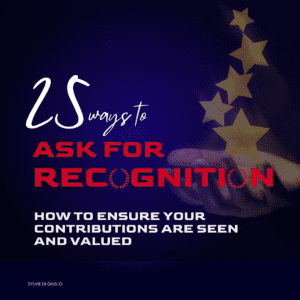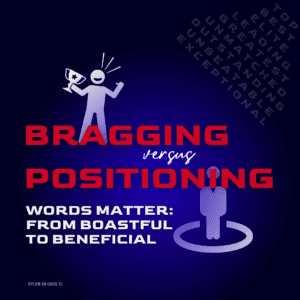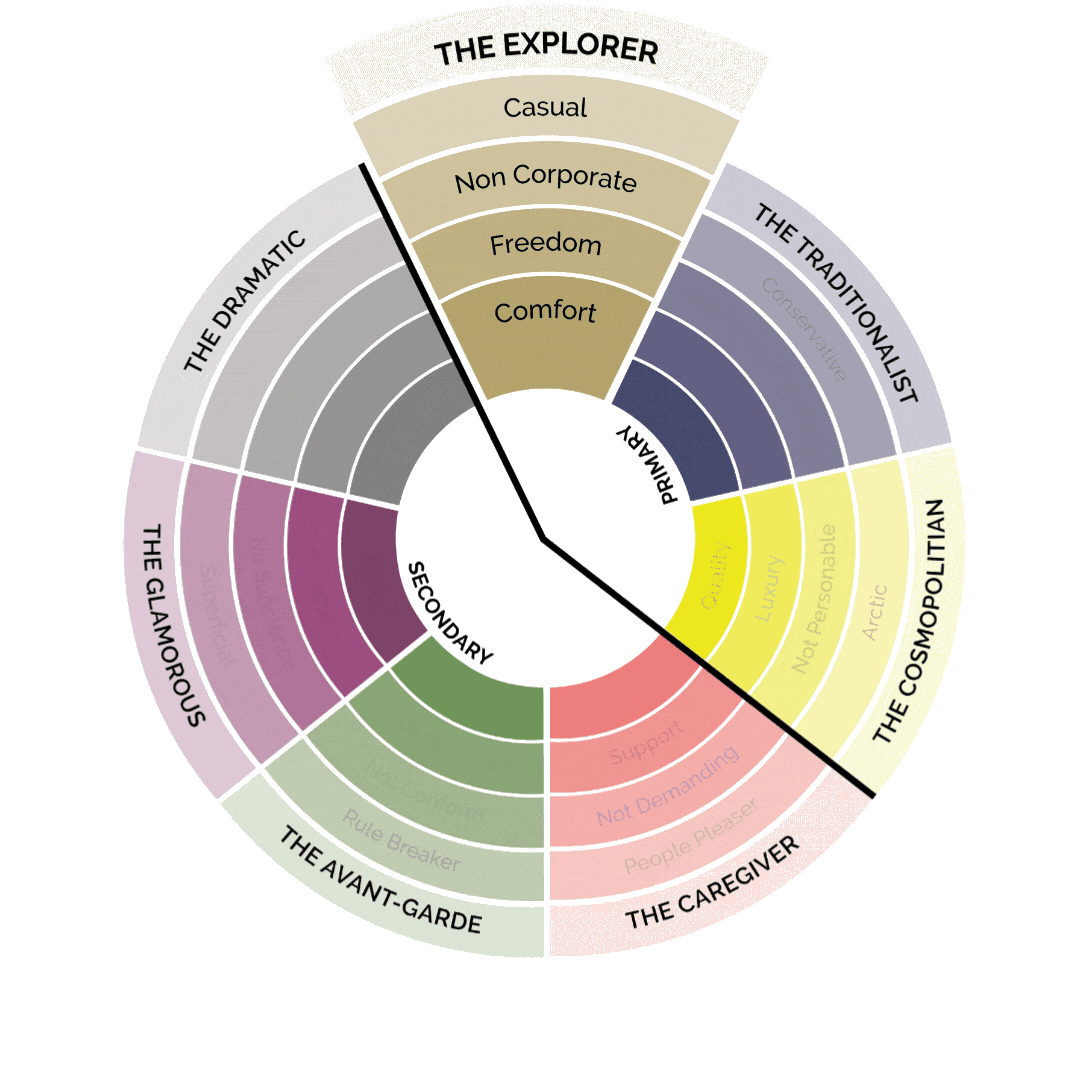What Not to Post on Social Media
We’ve all heard the saying, “what happens in Vegas, stays in Vegas.” Well, the same could be said for your social media accounts. Unfortunately, it is possible for what you post on social media to come back to haunt you in the future. Whether you’re oversharing or posting questionable content, the consequences can be severe when you have an inappropriate online presence. Let’s discuss some things you should avoid posting on social media if you want to maintain a positive reputation.
Political and religious content
If you post this type of content, you are asking for an argument. The majority of people are strongly disposed to each of these subjects, and it is often difficult to maintain a neutral stance online on these topics. There will also be times when your beliefs might alienate or offend some individuals, resulting in them viewing you in a negative light as a result. Some topics like these should be avoided entirely, such as controversial topics, so it’s best to stay away from them.
Negative or derogatory content
If you post negative content, you will be seen in a negative light—it’s as simple as that. This includes ranting about your job or coworkers, venting about your personal problems, and criticizing others for their behavior. If decision-makers, such as supervisors or clients, observe this type of behavior online, they may question your professionalism and your ability to handle sensitive situations in the future.
Drama or gossiping
There is often a temptation to share some drama on social media, but it can also have detrimental repercussions in your professional life. If you post this type of content on your social media accounts, people in charge of making decisions about you in your company, such as supervisors or clients, may perceive you as unprofessional or unreliable.
Threats or harassment
Using any threat or harassment toward another individual is never acceptable and can even have legal consequences. Nowadays, social media posts are easy to screenshot and share, making it highly difficult to remove harmful content from them.
Irrelevant viral posts
Having irrelevant viral posts on your channel will sully your credibility, especially if it’s something that people have seen before. Make sure you do not become just another person who shares a meme or a silly challenge. Posting content that aligns with your company’s and business’s brand and personality is a better choice.
Inappropriate photos or language
Photos and language that are inappropriate can be viewed as unprofessional and can negatively affect your reputation in the short and long run. It will have a negative impact on your current and future job opportunities, as potential employers may perceive your behavior as a red flag to them.
Posts with spelling and grammar errors
The best way to put your best foot forward is to check that your spelling and grammar are correct before hitting the “publish” button. Poor spelling and grammar can give the impression that you lack attention to detail, making others judge you negatively.
Self-incriminating evidence
Some specific videos and pictures should not be posted on social media, such as showing you taking drugs, drinking alcohol, using a firearm, or even taking a selfie on the highway. In addition to getting you into legal trouble, this is likely to indicate to decision-makers that you may not be reliable and responsible.
Expensive new purchases
These tend to amplify feelings of failure. It may be perceived as bragging, as a sign that you are not a team player, or that you are incapable of managing finances by others, including decision-makers. These posts also make you a prime target for a robbery. Keep expensive purchases offline, or else risk losing them and your safety.
Unsolicited advice
Avoid giving advice on social media unless you have explicitly been asked to do so. Sometimes we think we have the right opinions and try to force them upon others. However, this can come across as judgmental or arrogant, harming our relationships. It is best to keep your advice to yourself when not asked, so you don’t come across as ‘preachy’ or assuming you have all the answers.
Unproven advice
Whenever you give personal advice, you should be careful that it doesn’t backfire if you don’t have all the facts. Trust credible sources and professionals to provide advice on sensitive subjects such as financial, medical, relationships, or legal matters.
Constantly asking for advice
If you crowdsource all of your decisions, you will appear to lack confidence in your decision-making capabilities. If you cannot make simple decisions yourself, it can make you seem indecisive or unreliable to the decision-makers. Stick to seeking professional advice from credible sources instead.
Scammy contests and giveaways
You should never promote scammy contests and giveaways to friends. If they fall victim to a scam you recommended, it can have a detrimental impact on your professional reputation. In addition, most of these giveaways are only used by scammers to gain access to your personal information so that they can sell it to third parties for a profit.
Privileged inside information
On social media, it’s not a good idea to share any of your company’s information with others. When working in an organization, you may have access to sensitive information, so it’s important not to share anything that could harm the organization or get you into trouble.
So, before hitting the “post” button, consider e.v.e.r.y single time how others may perceive the content and if it aligns with your personal and professional brand. It’s better to err on the side of caution and avoid posting anything that may negatively affect yourself and those around you. Happy posting!
What are your rules for what you will and won’t post?
And are you interested in what to post instead? Here are some tips for you.
What not to post on Social Media in a Nutshell

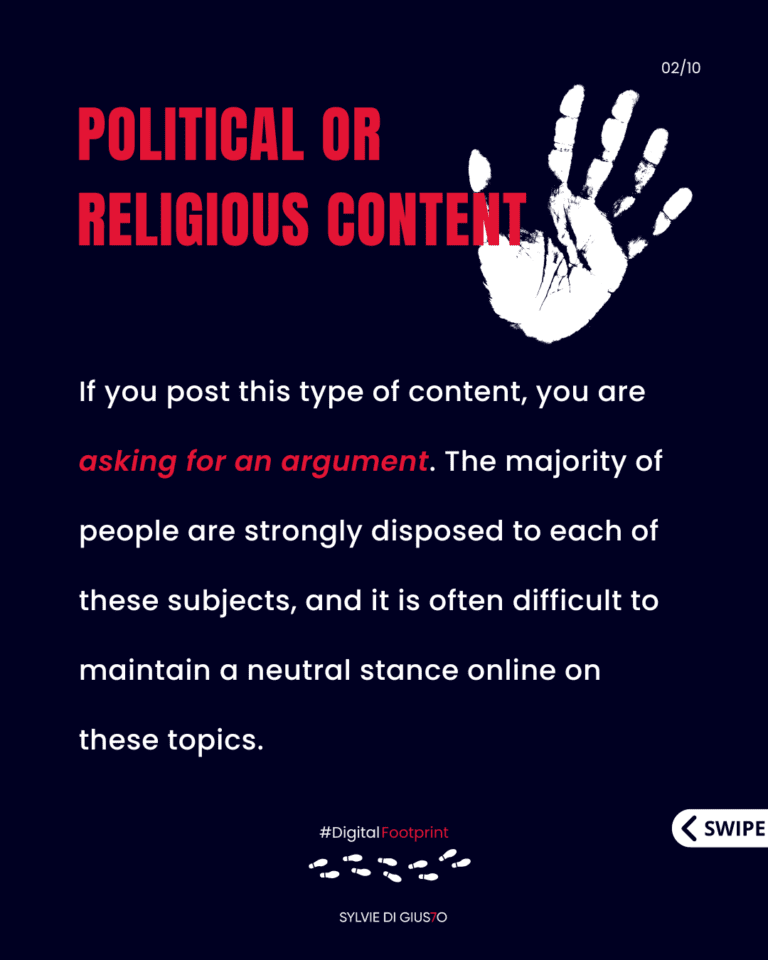
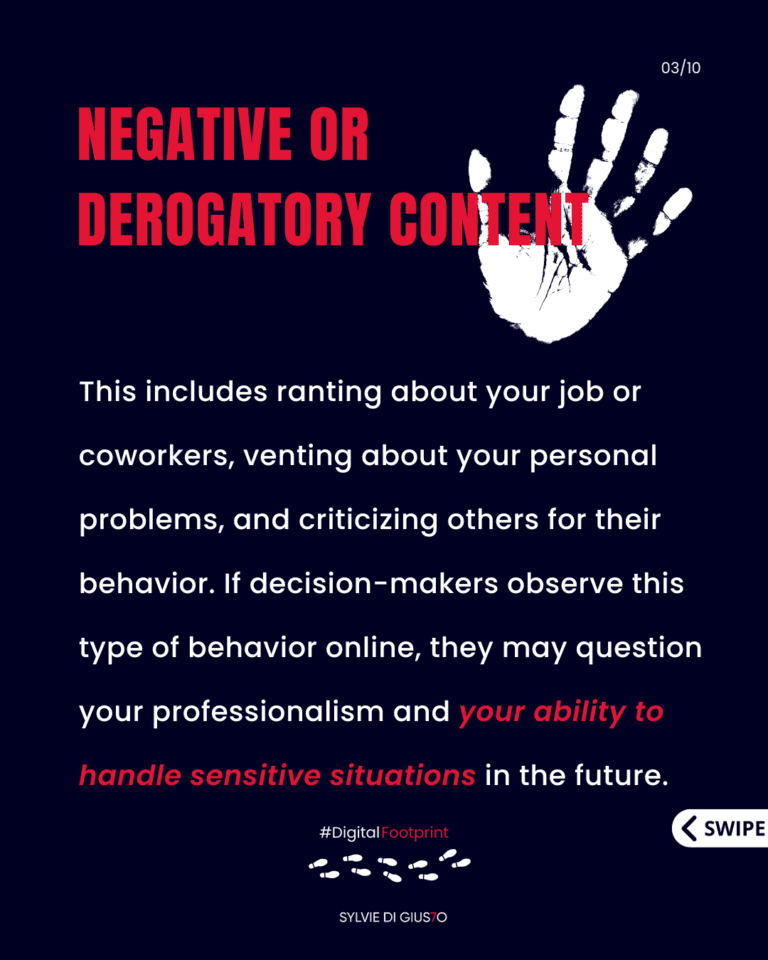
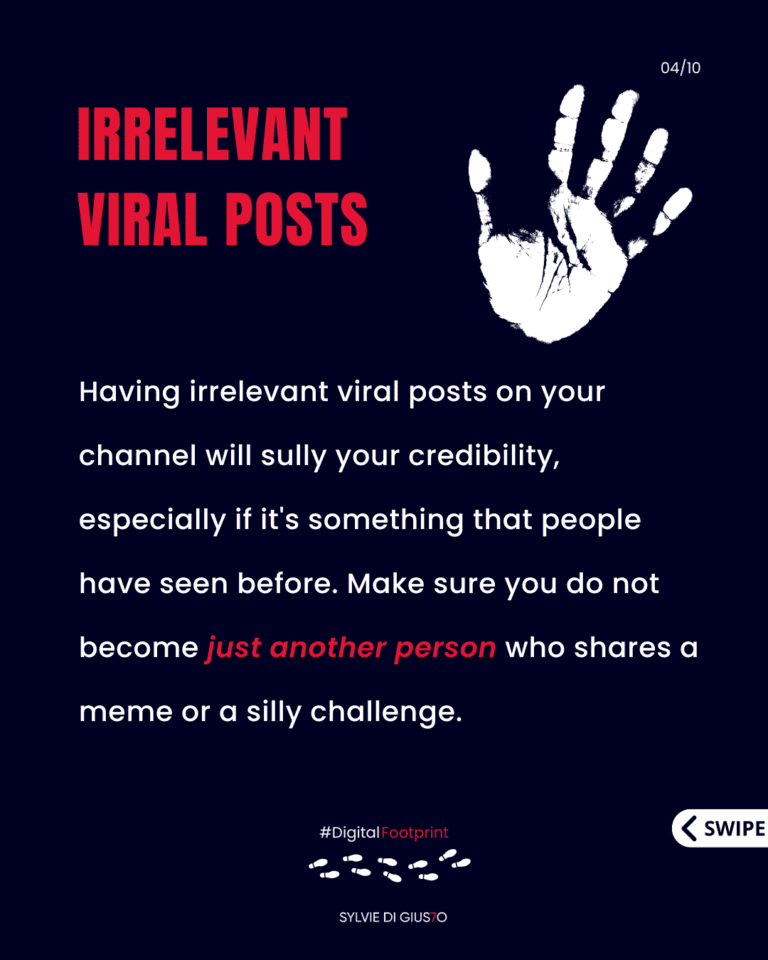
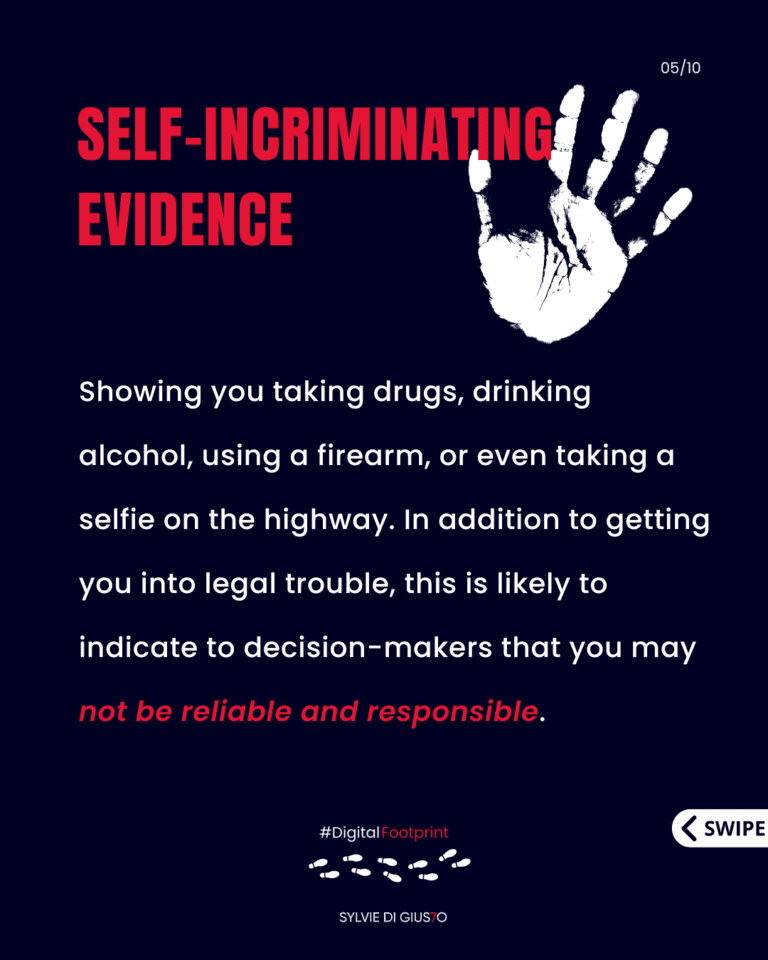
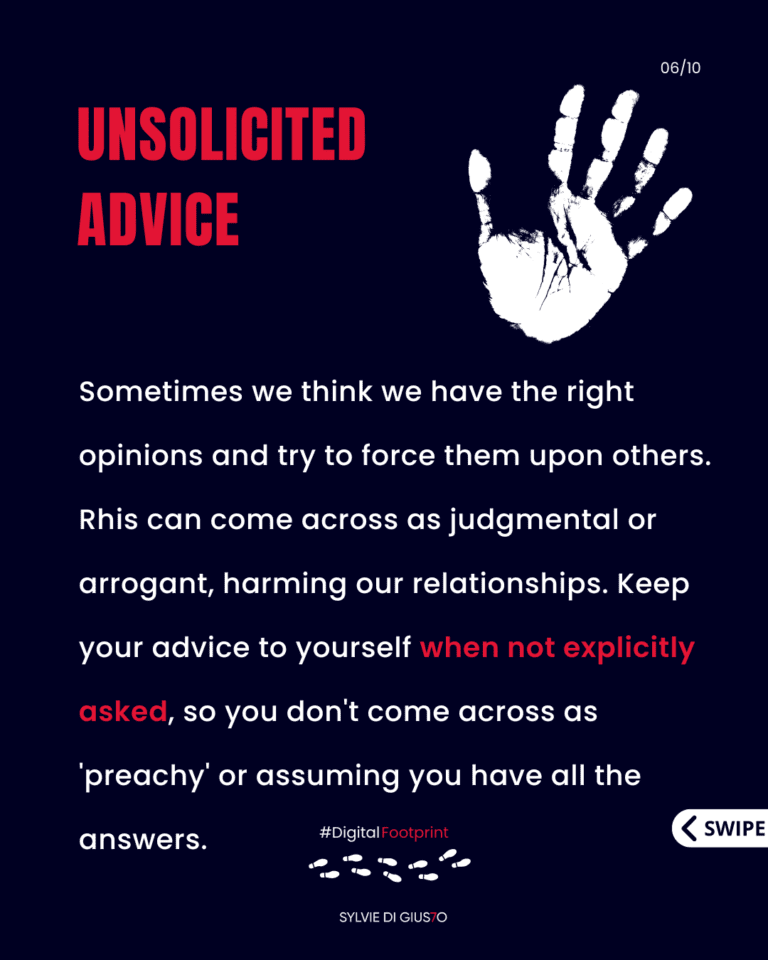
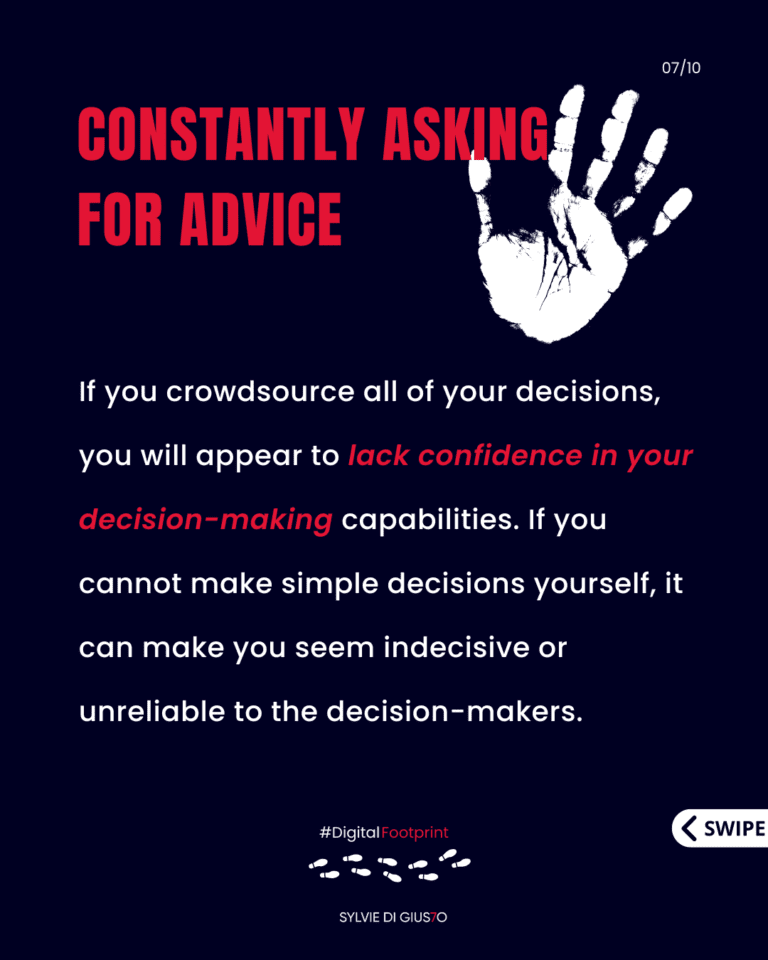

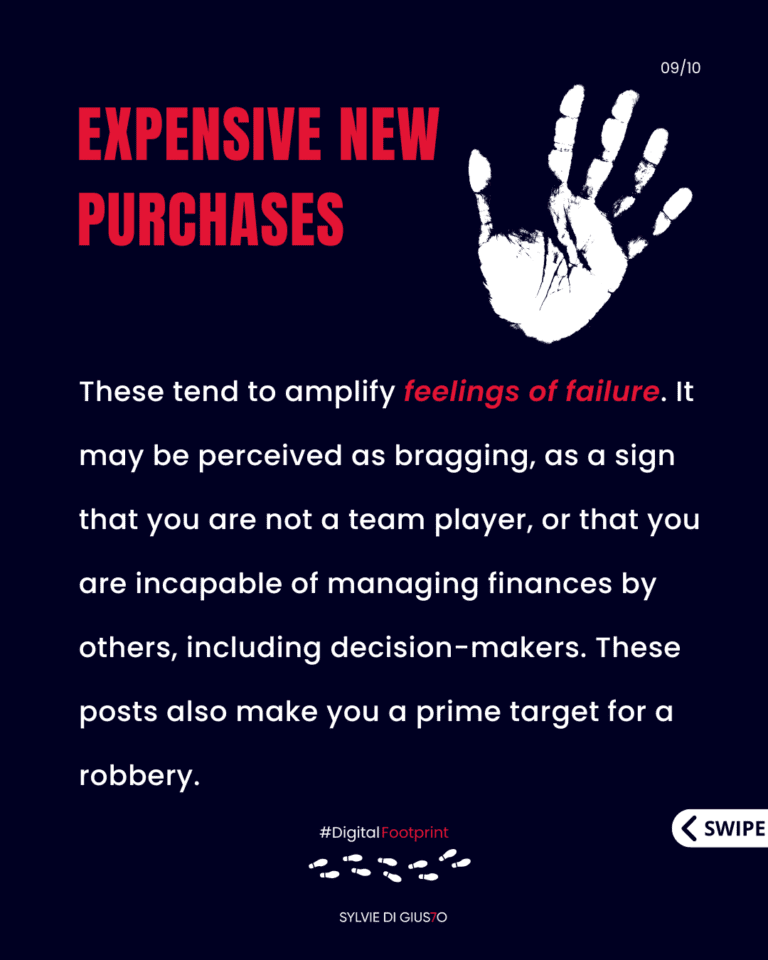

PS: Interested in more content like this? Make sure to follow me on Instagram. It’s where I visualize and publish my thoughts daily. I hope to see you there.
